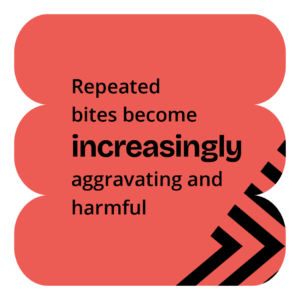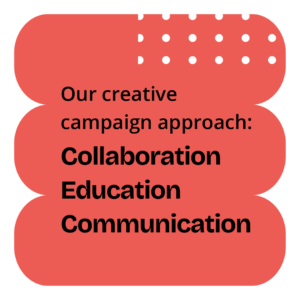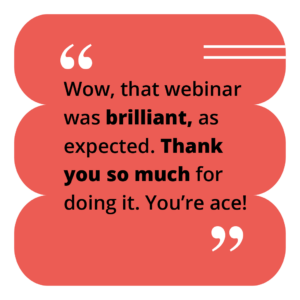Microaggressions can’t be rectified over lunch, but we sure gave it a good go! A big thank you to everyone who joined the FirePro webinar where I shared ways to tackle microaggressions in the workplace through compelling, creative and carefully co-produced communications.
From defining microaggressions to exploring the challenges, processes, and successes of team Alive’s campaign with the British Red Cross, I loved sharing stories, strategies, and insights with you.
Missed it? Need a refresher? Not to worry, here are the headlines…
What are microaggressions?
Microaggressions are commonplace verbal, behavioural or environmental slights and insults, whether intentional or unintentional, that communicate hostile, derogatory, or negative attitudes toward culturally marginalised groups.

I played this cracking video which uses a mosquito analogy to illustrate microaggressions – being bitten once might seem annoying and not a big deal to some, but repeated bites become increasingly aggravating and harmful – it’s cumulative. It’s well worth a watch!
With a clear definition and a couple of examples from Fire and Rescue services to ground everyone’s understanding of microaggressions and intersectionality, I then asked my webinar participants to share some examples they’ve witnessed, experienced, or even unintentionally enacted at work. From gendered biases (like women being expected to take notes or predicted to go part-time after maternity leave) to assumptions around age, ethnicity and even the comms profession, these examples highlighted how common, diverse and problematic microaggressions are.
Our campaign creation process
To create campaigns with real impact, we follow a simple process: discover, develop, deliver. I explained how gathering insights from real lived experiences in the discovery phase is key; it not only helps justify decisions to leadership but also encourages those involved to champion the campaign once it has launched.

Our approach:
Collaboration: co-production with the British Red Cross meant getting feedback from their EDI steering groups and staff networks every step of the way.
Education: our messaging ensured the campaign led to ‘penny drop moments’, as opposed to shaming people.
Communication: the BRC team were super trauma-informed and explained the campaign’s intentions ahead of launch.
A big part of our strategy was creating a toolkit – a practical resource packed with activities and insights to spark meaningful conversations about microaggressions. This also helped get leadership buy-in, making it easy for them to support and implement.
The outcomes
After walking everyone through our creative development process, I shared some key reflections and outcomes from the campaign, including:
- 86% of staff said they would feel confident reporting racist behaviour.
- The percentage of British Red Cross staff identifying as Black, Asian, mixed race, or other minority ethnicities rose from 14.6% in 2023 to 15.9% in 2024.
- 10 leaders ran sessions on this topic within the first 8-12 weeks of launching.

Want to tackle microaggressions in your organisation?
No matter where you are on your inclusion journey, we’d love to support you. Please connect with me and Alive on LinkedIn or drop team Alive an email: hello@alivewithideas.com.
Ps. Thanks for the loveliness
“Wow, that webinar was brilliant, as expected. Thank you SO much for doing it. You’re ace!”
“Cracking stuff – Alive’s creativity is just amazing and so visually engaging. We’d love to learn more, as this is a big focus for our People team as part of our culture action plan.”
“Thank you, Lauren, really useful session.”
___
By Lauren Castle
















